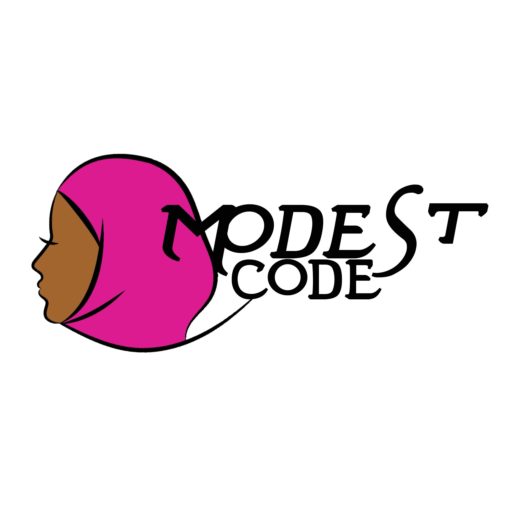After working with UNFPA Ghana for the past two years, I decided to leave and explore opportunities outside the organization.
This new opportunity would allow me to test my abilities, expand my portfolio, and grow horizontally. I was nonetheless amazed to see the reaction I got when I communicated my decision.
I could sense confusion and surprised faces eager to ask, “You’re leaving the UN for a Program Assistant role at a non-profit? or “What exactly is it that they do?”.
These reactions led me to believe that there needs to be more understanding regarding the work of non-profits/smaller impact-driven organizations. In social development practice, size is not the only indicator of change. Size is a metric that is often mistaken for the level of impact. While size matters, it is usually within the context of other underlining variables.
In no particular order of importance or chronology, here are some reflective pointers that informed my decision.
I represent a section of the Or Foundation’s impact demography
Why did I apply for and accept a “Kayayei Programs Assistant” role at the Or Foundation? Well, first of all, I am a “Kayayo.” singular for Kayayei. Kayayei is coined from the Hausa word “Kaya”. Kaya refers to load or Burden. The Ga pronoun for She/her, is “Yei.” It is a portmanteau that means “she who carries load/burden.”
It refers to female head porters working in the biggest markets in some major cities in Ghana. Kayayei are called a variation of the same term in other markets. Like “Paa-o-pa” in the markets in Kumasi, Ghana’s second-largest city.
Most of these women and girls come from Northern rural areas in search of better working conditions. Breadwinners who fend for themselves, or raise capital to send back home. Others might be relocating to avoid difficult situations or abuse.
I am a proud Northern Ghanaian woman. I grew up in a typical northern home. I have often left home searching for higher education, better working conditions, or alternatives. At each point, I have carried the burden of creating a better life for myself, my family, and my community. So yes, I am a Kayayei but in this respect, who isn’t?
There is a Kayayei in all of us! We leave home to study, work and start new lives, and sometimes we leave home just to escape. The difference with the Kayayei women is that more has stayed the same for them.
I have been at the receiving end of negative societal connotations; the challenges of being a woman in a professional environment. Coupled with being from Northern Ghana (predominately labeled as rural, poor and uneducated) and a visibly Hijabi Muslim. However, these challenges do not come close to the experiences of some of these women in the markets. Because of this, this role is personal and self-serving. I understand the challenges faced by these women on an intimate level. I am driven to be part of a movement that seeks to identify and manifest alternatives for them.
A unique and compelling mission
Societal challenges are complex and dynamic; it usually takes various solutions from different actors. These complexities make conventional work forms and business-as-usual approaches detrimental to the progress of social development, especially in Africa. The tendency to perpetuate a one-size-fits-all solution usually results from the absence of information, data, and understanding. This is evident in most social programs and policies, some of which I have first-hand experience with.
Over the past years, I have strived to push beyond my boundaries, explore alternative tools and efficient models to deal with local problems. For this reason, I started conducting behavioral science research. The goal is to uncover insights and provide data on how best to use evidence-based approaches in social policy and programs mainly targeted at Kayayei.
The Or Foundation focuses on identifying and manifesting alternatives to the dominant fashion model, often associated with exploitation, ecological destruction, and a lack of transparency. It works in environmental justice, education, and sustainable fashion development. I am intrigued by the impact of fashion waste and its knock-on effect on vulnerable groups like the second-clothing resellers and the Kayayei.
Sustainable fashion is a new concept to me, and I intend to expand my knowledge base in these areas.
Part of my role as Kayayei Programs Assistant in the Or Foundation’s Mabilgu Program, focuses on exploring new training opportunities. Especially in jobs/roles customarily reserved for men, such as carpentry, plumbing, electrical installation, etc. This allows me to continue my advocacy for women’s rights and gender equality. Exploring a new framework that looks at these issues through an environmental justice, education, and fashion development lens.
The opportunity to work directly with founders
In recent years, the emergence of impact-driven organizations and initiatives has grown exponentially. These entities are typically agile and led by passionate individuals. Fascinated with problem-solving and a drive to make a difference in their respective fields.
Despite their small size, these organizations are often just as capable (if not more). They develop innovative, effective, and sustainable solutions that can generate tangible results.
As a result, more prominent organizations set up smaller units to develop innovative pathways. To identify and work with innovators that are laser-focused on specific challenges. For instance, the SG Ghana Innov8 within the SG Bank, The WFP Innovation Accelerator, The UNDP Accelerator Labs, and the UN Behavioural Science group of which I participate.
Being a relatively new and growing organization, there is an opportunity to work directly with the founders, connect with the story and purpose of the OR Foundation. This means I can bring my ideas to the table and be part of an evolving culture.
The founders are passionate about their work and mission. More importantly, they are flexible in their approach and always ready to listen to feedback. Such an environment is key to nurturing bold new ideas that can effect a more significant impact.
We genuinely intend to contribute meaningfully to our work and the communities we serve. In that case, we must make deliberate attempts to assess our decisions and how they affect our overall career path.
My decision to join The Or Foundation is not only to focus on the weighing challenges affecting my immediate environment. But also to keep an eye on the bigger picture; how to devise new forms of work and unearth data that can fundamentally transform the impact of social interventions.
The bigger picture is a behavioral insight lab my husband and I have been working on for the past years. Our behavioral science research will potentially unlock gaps in data needed to tackle local societal issues. Such issues are Kayayei phenomenon. Healthcare equity, and uplift people beyond the poverty line through the application of data-driven initiatives.
As duty bearers from our various communities, we are responsible for actively participating in understanding and engineering appropriate solutions. We are not mere beneficiaries of interventions.
I am grateful for all the kind words and support from my network as I adjust smoothly to my new role.
Samiha Sulley is a social worker and passionate about the wellbeing of women especially women from Northern Ghana.





I stumbled on the Or Foundation just yesterday and I am more than happy to see a Muslim woman join their team to help them redefine fashion in sustainable ways.
I was impressed by their mission in general- rescuing kayayei and teaching our second-hand clothes merchants is an initiative that needs all the support it can get.
I was really disturbed when I saw the amount of waste generated from second-hand clothes and its devastating impact on our environment.
I wish you well in your new role Samiha. Joining Or is a great a bold decision, may Allah aid you.
If you need help with grants, I am willing to help you write grant proposals to them.
Ma sha Allah
May Allah strength you will to do more for the women